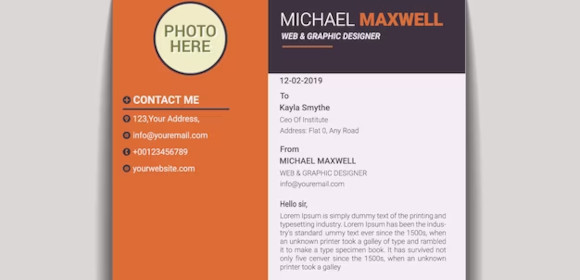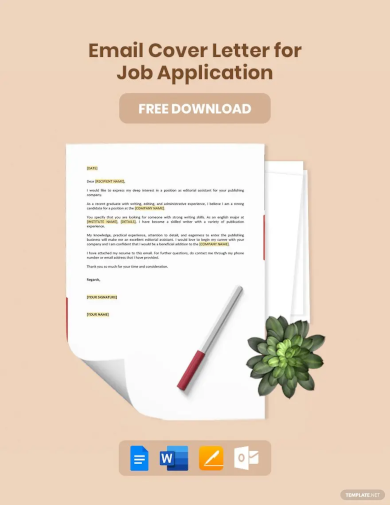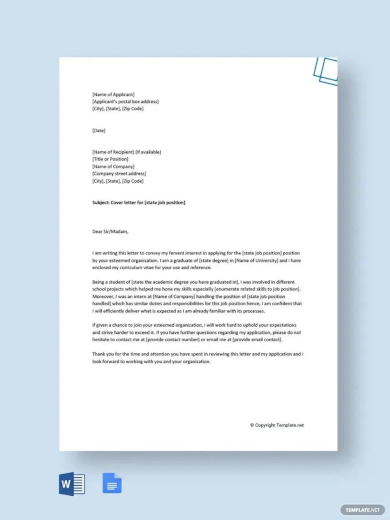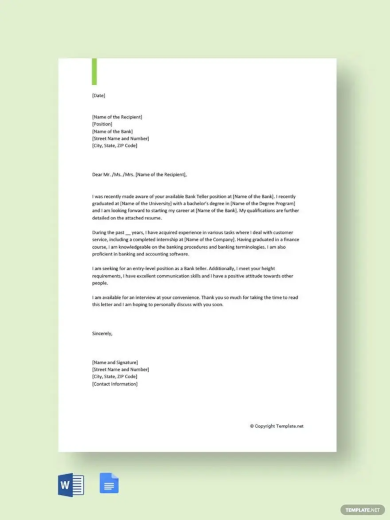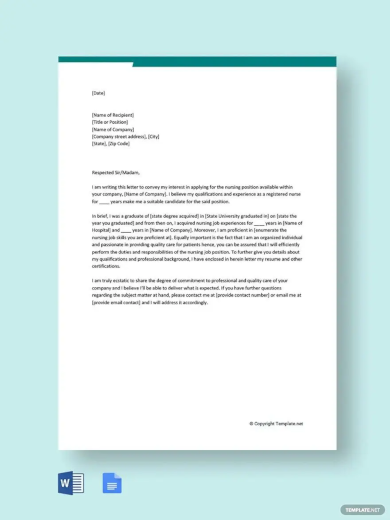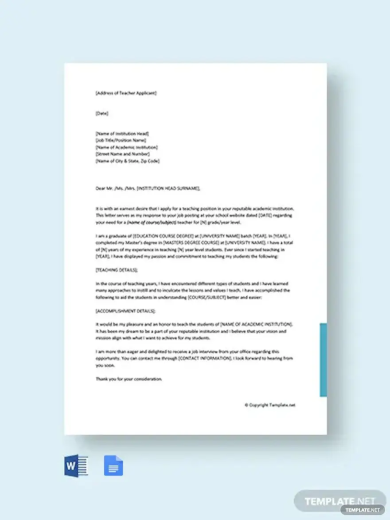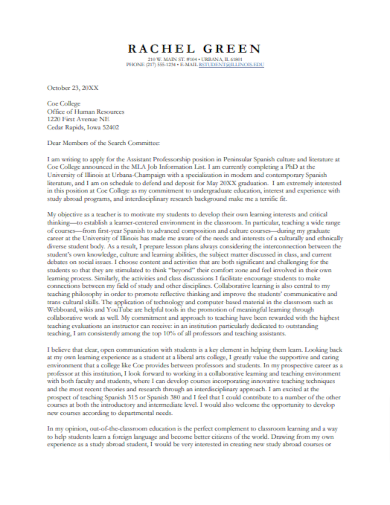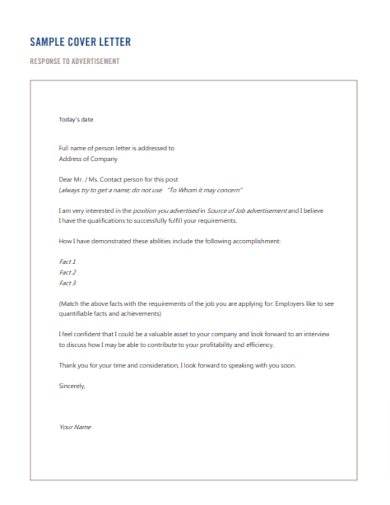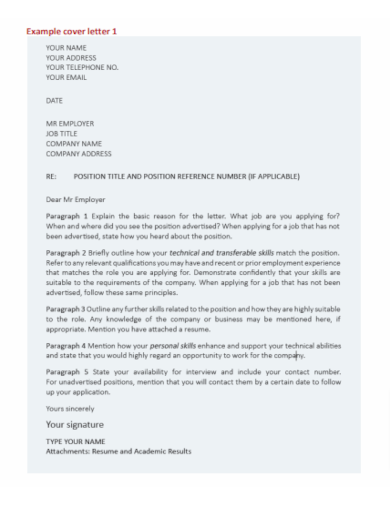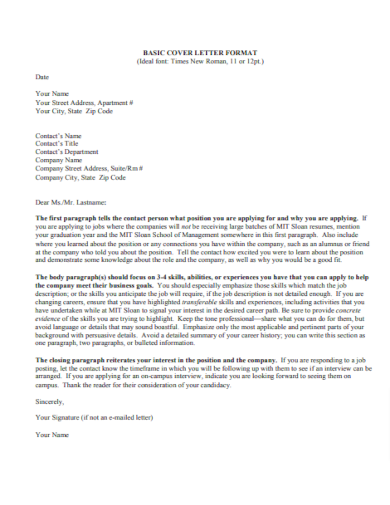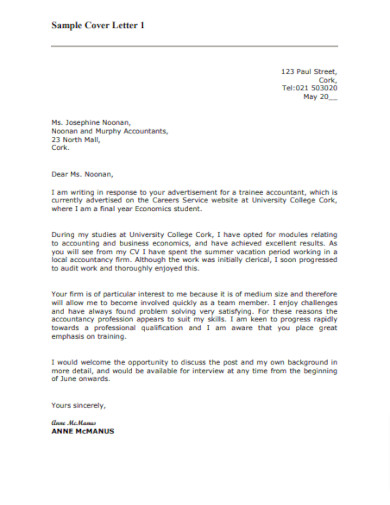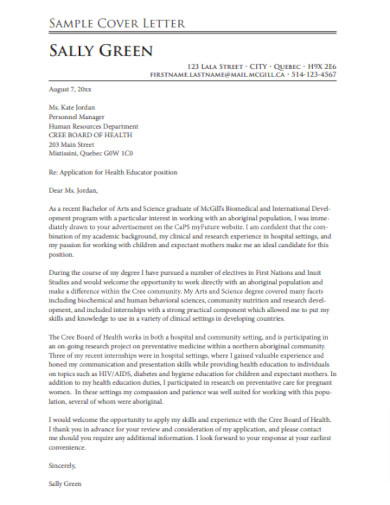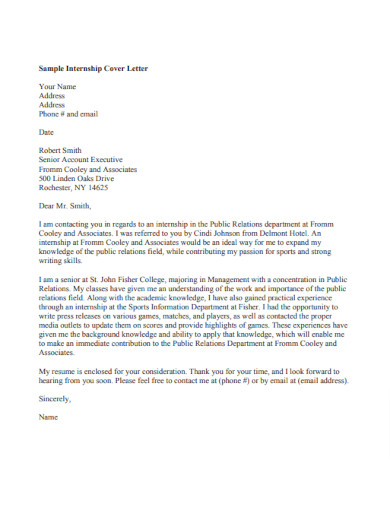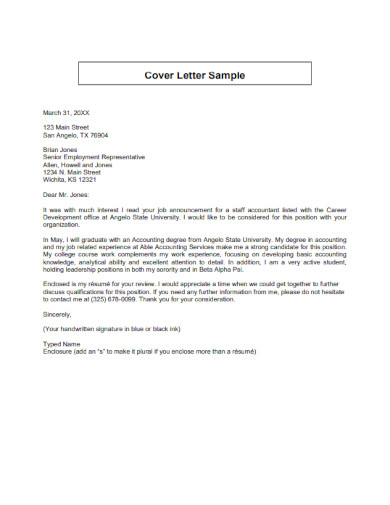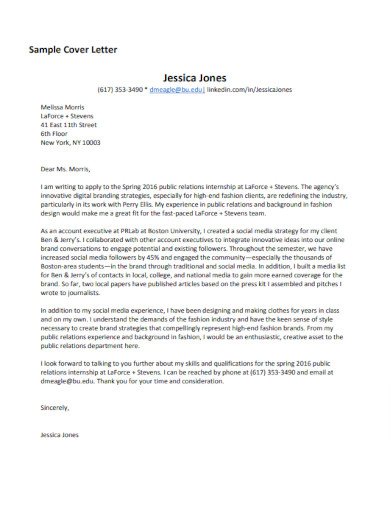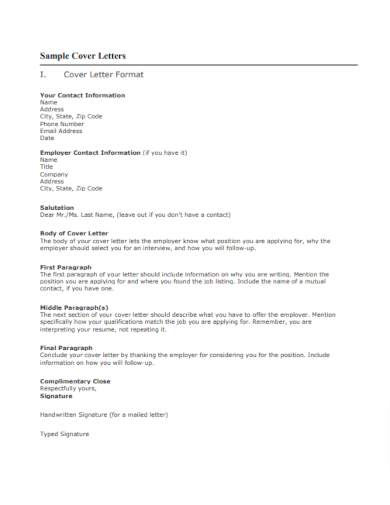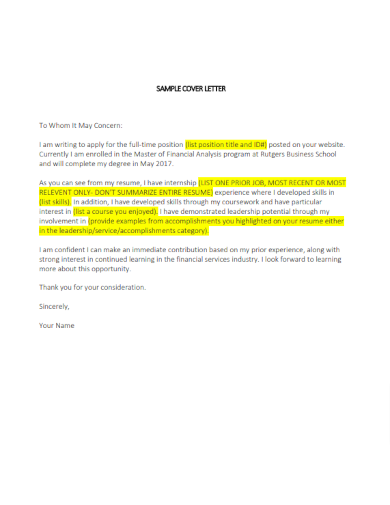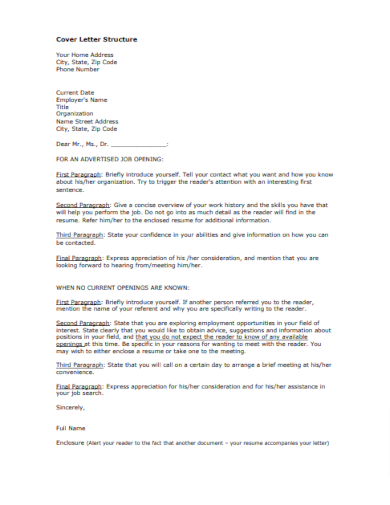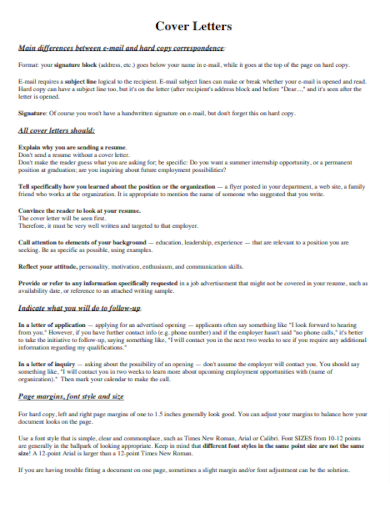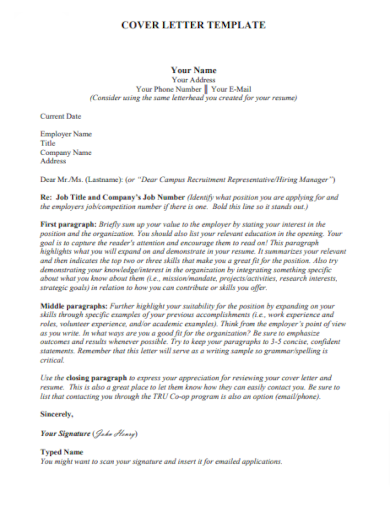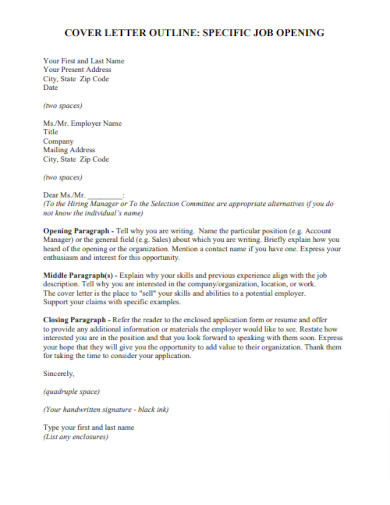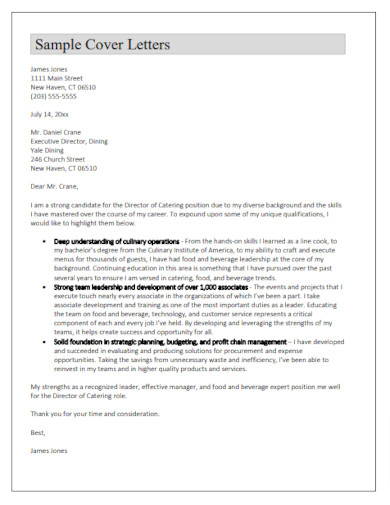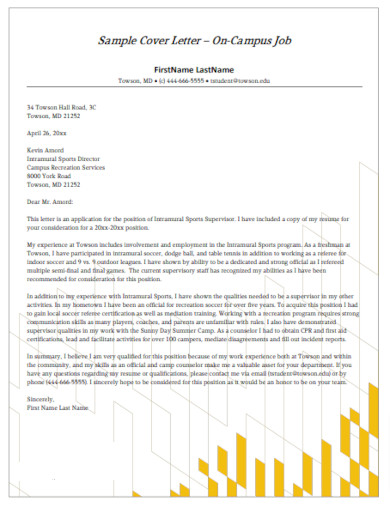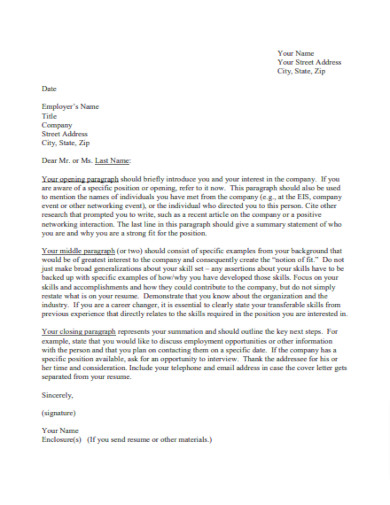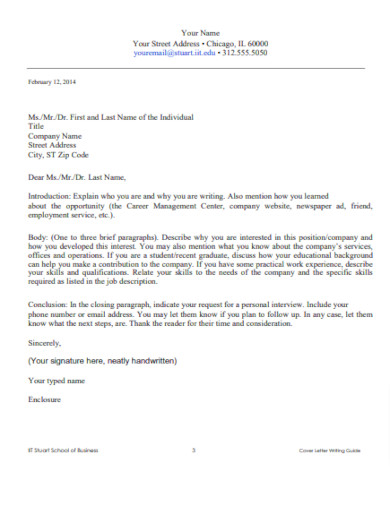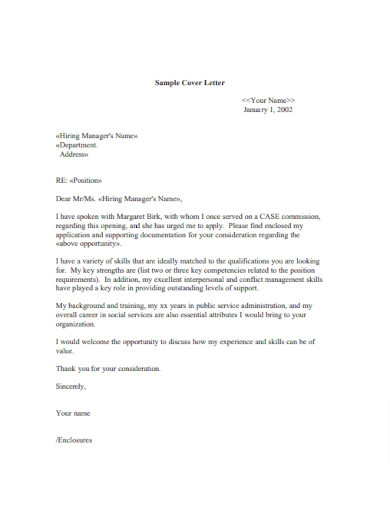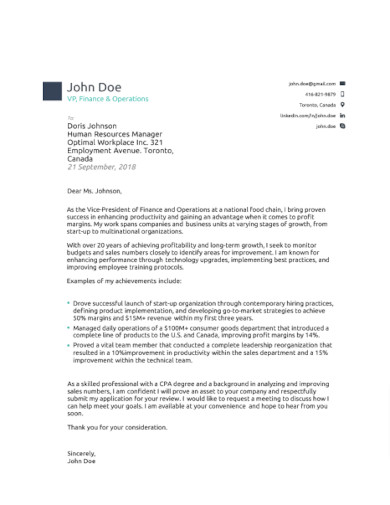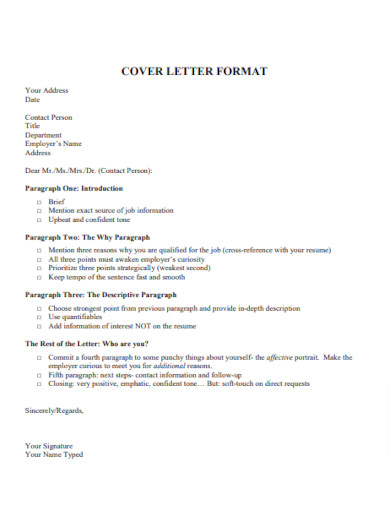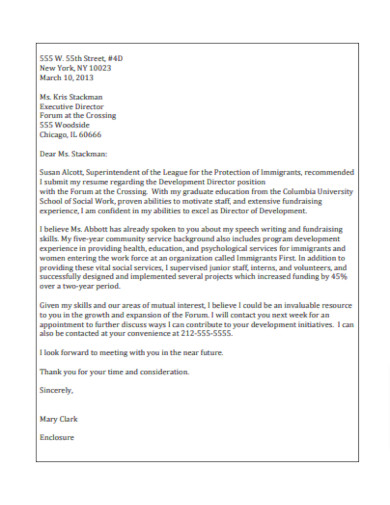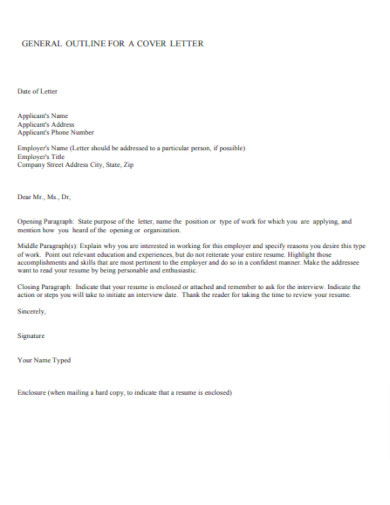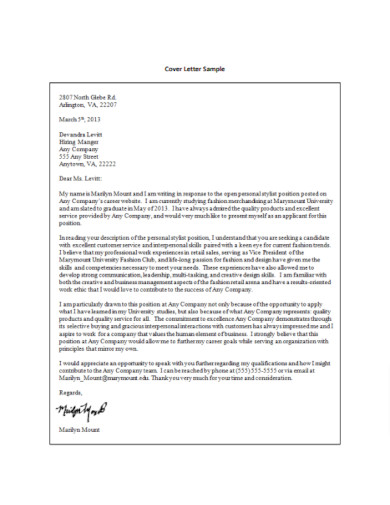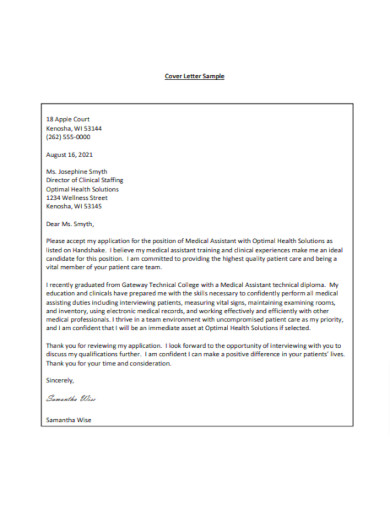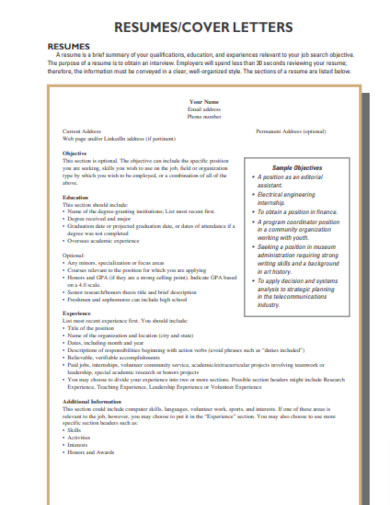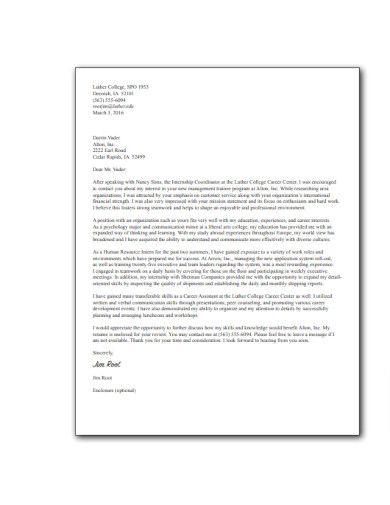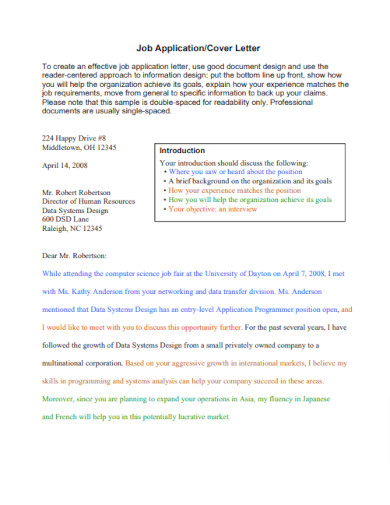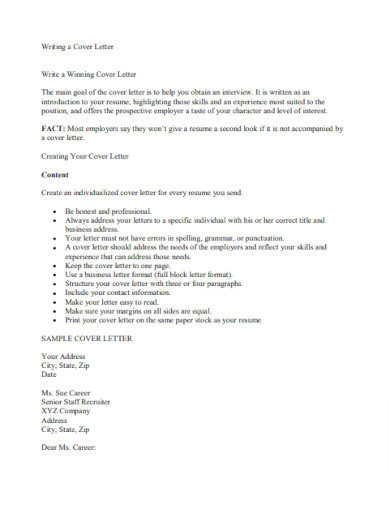35+ Cover Letter For Job Application Examples to Download
Writing a cover letter for a job application can be a daunting task, especially if you’re not sure where to start. However, a well-crafted cover letter can make a significant difference in landing an job interview and ultimately, a job offer along with job description. In this article, we will explore some examples of different types of cover letters and provide tips for writing an effective one that showcases your skills, experience, and passion for the job. Whether you’re a recent graduate or an experienced professional, a great professional cover letter can set you apart from other candidates and increase your chances of success.
Email Cover Letter for Job Application Template
Cover Letter for Job Application for Freshers Template
Cover Letter for Bank Job Application Template
Cover Letter for Nursing Job Application Template
Cover Letter For Teacher Job Application Template
Academic Cover Letter Example
Sample Cover Letter
Cover Letter Example
Basic Cover Letter Example
Cover Letter for Trainee Accountant
Cover Letter for Health Educator
Internship Cover Letter
Cover Letter for Senior Employment Representative
Standard Cover Letter Template
Sample Cover Letters
Simple Cover Letter Example
Cover Letter Structure
Cover Letter Example
Simple Cover Letter Template
Cover Letter For Specific Job Opening
Cover Letter For Director of Catering position
Cover Letter For On-Campus Job
Basic Cover Letter Example
Editable Cover Letter
Printable Cover Letter
Effective Cover Letter
Cover Letter Format
Cover Letter For Development Director position
General Cover Letter
Cover Letter For Personal Stylist Position
Cover Letter For Medical Assistant
Creative Cover Letter
Draft Cover Letter
Modern Cover Letter
Winning Cover Letter
What is a Cover Letter for Job Application?
A cover letter for a job application is a one-page document that accompanies your job resume and is typically sent to potential employers or recruiters. The purpose of a cover letter is to introduce yourself, highlight your relevant soft skills, hard skills, and work experience, and explain why you are the best candidate for the job. A well-crafted cover letter can demonstrate your enthusiasm for the position and the company, showcase your writing and communication skills, and provide additional context and information that may not be included in your resume. A cover letter can also help you stand out from other candidates and increase your chances of getting an interview.
How do you write a Cover Letter for Job Application?
Your cover letter should complement your resume and showcase your skills and experience in a compelling and concise way. By following these steps, you can write an effective cover letter that increases your chances of getting an interview and landing your dream job. Here are some steps to follow when writing a cover letter for a job application:
Step 1: Research the company
Before you start writing, research the company and the position you are applying for. This will help you tailor your cover letter to the specific needs and culture of the company.
Step 2: Format your cover letter
Use a professional and readable font, and include your name, address, phone number, and email at the top of the page. Add the employer’s contact information and the date.
Step 3: Begin with a strong opening
Start your cover letter with a strong opening that captures the reader’s attention and makes them want to learn more about you. For example, you could start with an interesting fact about the company or the position, or you could mention a mutual connection or a recent accomplishment.
Step 4: Highlight your relevant experience and skills
In the body of the cover letter, highlight your relevant experience and skills that match the requirements of the job. Provide specific examples that demonstrate your abilities, and use keywords from the job description to show that you have read it thoroughly.
Step 5: Explain why you want the job
Explain why you are interested in the job and the company, and how your skills and experience make you the best candidate for the position. Show your enthusiasm and passion for the industry, and explain how the job aligns with your career goals.
Step 6: End with a strong closing
End your cover letter with a strong closing that thanks the employer for considering your application, reiterates your interest in the position, and invites them to contact you to schedule an interview.
Step 7: Proofread and edit
Before you submit your cover letter, proofread it carefully for grammar and spelling errors, and ensure that it is well written and concise. Ask a friend or mentor to review it as well, to get a fresh perspective.
FAQs
How do I format a cover letter for a job application?
Use a professional and readable font, and include your name, address, phone number, and email at the top of the page. Add the employer’s contact information and the date. Start with a strong opening, highlight your relevant experience and skills, explain why you want the job, and end with a strong closing.
What should I include in a cover letter for a job application?
In a cover letter, you should introduce yourself, highlight your relevant experience and skills, explain why you want the job, and show your enthusiasm and passion for the industry. Use specific examples that demonstrate your abilities, and show how you are the best candidate for the position.
Do I need to customize my cover letter for each job application?
Yes, it is recommended to customize your cover letter for each job application to show that you have researched the company and the position and that you are a good fit for the job. Use keywords from the job description to show that you have read it thoroughly and understand the requirements of the position.
In conclusion, a well-written cover letter can be a powerful tool in your job search. By following the steps outlined in this article and customizing your cover letter for each job application, you can showcase your skills and experience in a way that grabs the attention of potential employers and increases your chances of getting an interview. Remember to be concise, use specific examples, and show your enthusiasm and passion for the job and the industry. With a strong cover letter, you can set yourself apart from other candidates and land your dream job.


